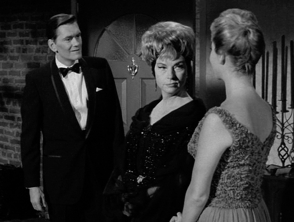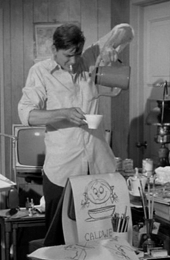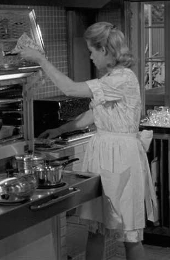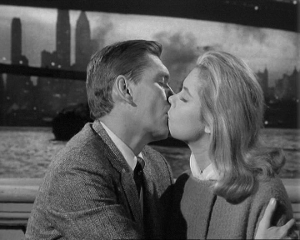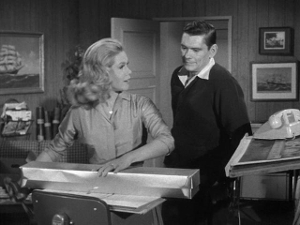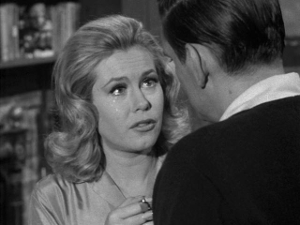Where Have You Been, Dear David?
I Have Been Elsewhere, Dear Reader
Tuesday, December 27, 2016 1:31 pm
So I resurrected my blog in the spring of 2015. And then, having coded it and deployed it and spun it up with a few entries (some reused from long ago), I disappeared. Isn't that the way?
Now I am back, perhaps to disappear again.
Fickle blogger I be.
Now I am back, perhaps to disappear again.
Fickle blogger I be.
An Inadequate Number of Robots
Hugo Awards 2015 - Short Stories
Sunday, June 14, 2015 10:42 am
I am a voter for the 2015 Hugo Awards. I am posting my thoughts about the candidate works. Be warned that spoilers abound.
There are five short stories on the Hugo list. I'll be referring to them using the following abbreviations.
OSP — On a Spiritual Plain by Lou Antonelli
PBB — The Parliament of Beasts and Birds by John C. Wright
SS — A Single Samurai by Steven Diamond
TT — Totaled by Kary English
TC — Turncoat by Steve Rzasa
My comments on these shorts will be short — and scattered.
There are five short stories on the Hugo list. I'll be referring to them using the following abbreviations.
OSP — On a Spiritual Plain by Lou Antonelli
PBB — The Parliament of Beasts and Birds by John C. Wright
SS — A Single Samurai by Steven Diamond
TT — Totaled by Kary English
TC — Turncoat by Steve Rzasa
My comments on these shorts will be short — and scattered.
The Goblin Emperor
Hugo Awards 2015 - Novel by Katherine Addison
Friday, May 29, 2015 6:59 pm
I am a voter for the 2015 Hugo Awards. I am posting my thoughts about the candidate works. Be warned that spoilers abound.
Maia, the half-goblin and youngest son of the Emperor of the Elflands, banished with his mother from the court, inherits the crown when the Emperor and all other his other sons are killed in an airship accident (which was, in fact, no accident). Maia is not at all prepared and has to find his place.
To begin with, this novel passed one of my standard tests: I never cringed at the dialogue. Sometimes I cringed at what was being said, but never the way it was being said. None of it was cloying or cute. Indeed, none of the writing made me cringe. That may seem like faint praise, but it's not. Addison's style is controlled and effective. She revealed things in a sound order, with a sound pacing. Things followed one another well and I wanted to keep reading. Her fantasy world did not dazzle me and seems a bit conventional (even to me, who doesn't read much fantasy), but it worked.
Maia, the half-goblin and youngest son of the Emperor of the Elflands, banished with his mother from the court, inherits the crown when the Emperor and all other his other sons are killed in an airship accident (which was, in fact, no accident). Maia is not at all prepared and has to find his place.
To begin with, this novel passed one of my standard tests: I never cringed at the dialogue. Sometimes I cringed at what was being said, but never the way it was being said. None of it was cloying or cute. Indeed, none of the writing made me cringe. That may seem like faint praise, but it's not. Addison's style is controlled and effective. She revealed things in a sound order, with a sound pacing. Things followed one another well and I wanted to keep reading. Her fantasy world did not dazzle me and seems a bit conventional (even to me, who doesn't read much fantasy), but it worked.
In Vocation
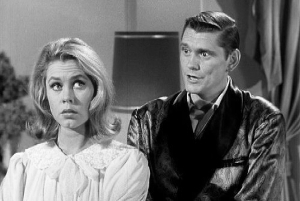 What does everyone know about Bewitched? It's about a free-spirited young witch whose uptight husband does everything he can to suppress her natural inclinations to magic.
What does everyone know about Bewitched? It's about a free-spirited young witch whose uptight husband does everything he can to suppress her natural inclinations to magic.
No. It's not.
Go back to the first season, before the show became focused on the farce, and you'll clearly see its theme. Abandon the feminist distortions and you'll see that Bewitched is about two newlyweds, thoroughly in love, who are trying to establish a normal, suburban life.
Witch and Wife
Monday, March 30, 2009 10:56 pm

No. It's not.
Go back to the first season, before the show became focused on the farce, and you'll clearly see its theme. Abandon the feminist distortions and you'll see that Bewitched is about two newlyweds, thoroughly in love, who are trying to establish a normal, suburban life.
Amid the Forests, Among the Stars
A Little Animism Might Help
Sunday, October 5, 2008 7:52 pm
When considering what has occupied thinkers until the modern age, it strikes me how unabashedly they ruminated on the non-material. For ancient and medieval thinkers, material things were not ultimate things, and truly ultimate things can and should be understood.
Modern materialists simply lack imagination. Maybe it is better to say that their imaginations cannot escape their machines and mathematics. Whatever strength of imagination they do have — to imagine, say, a warp in spacetime — they reject any concepts not reducible to the material.
Thus they are terribly hampered when it comes to thinking about the supernatural, let alone believing in God. Indeed, unlike the rest of us, they have no sense of the Divine. Perhaps they truly lack this sense. Rather than having plucked out their eyes, they were simply born blind. Either way, is it not amusing how they think themselves superior for being handicapped? It never occurs to them that they are in a minority not because they, as an elite, have transcended mankind, but because they are simply damaged.
Modern materialists simply lack imagination. Maybe it is better to say that their imaginations cannot escape their machines and mathematics. Whatever strength of imagination they do have — to imagine, say, a warp in spacetime — they reject any concepts not reducible to the material.
Thus they are terribly hampered when it comes to thinking about the supernatural, let alone believing in God. Indeed, unlike the rest of us, they have no sense of the Divine. Perhaps they truly lack this sense. Rather than having plucked out their eyes, they were simply born blind. Either way, is it not amusing how they think themselves superior for being handicapped? It never occurs to them that they are in a minority not because they, as an elite, have transcended mankind, but because they are simply damaged.
Ages as Bright as Any
Michael Flynn's Eifelheim
Saturday, June 21, 2008 9:37 pm
In seeking science fiction that is neither left-wing nor Christophobic, I would have thought the worst place to look would be in a novel about aliens crashing in a medieval German town. O! the opportunities to condemn the superstitious villainies of the Dark Ages! Beleaguered aliens — so like ourselves in their adherence to Science! — against the base and ignorant Catholicism of dim-witted villagers! Goodness me, the cliches write themselves.
Eifelheim is absolutely nothing like that. This is a work that depicts medieval Catholics with sympathy, not by supposing them to be unwashed Episcopalians who would vote Democratic if only they could, but by eschewing condescension and hatred — and, more to the point, by depicting the faithful Catholics as fully rational.
Eifelheim is absolutely nothing like that. This is a work that depicts medieval Catholics with sympathy, not by supposing them to be unwashed Episcopalians who would vote Democratic if only they could, but by eschewing condescension and hatred — and, more to the point, by depicting the faithful Catholics as fully rational.
Deckard Is Not a Replicant
No Matter What Ridley Scott Thinks
Saturday, May 24, 2008 6:00 pm
Blade Runner is about memory and mortality: memory as the fountain of genuine life; mortality as the completion of memory.
© 2004-25 David Skinner · All rights reserved
